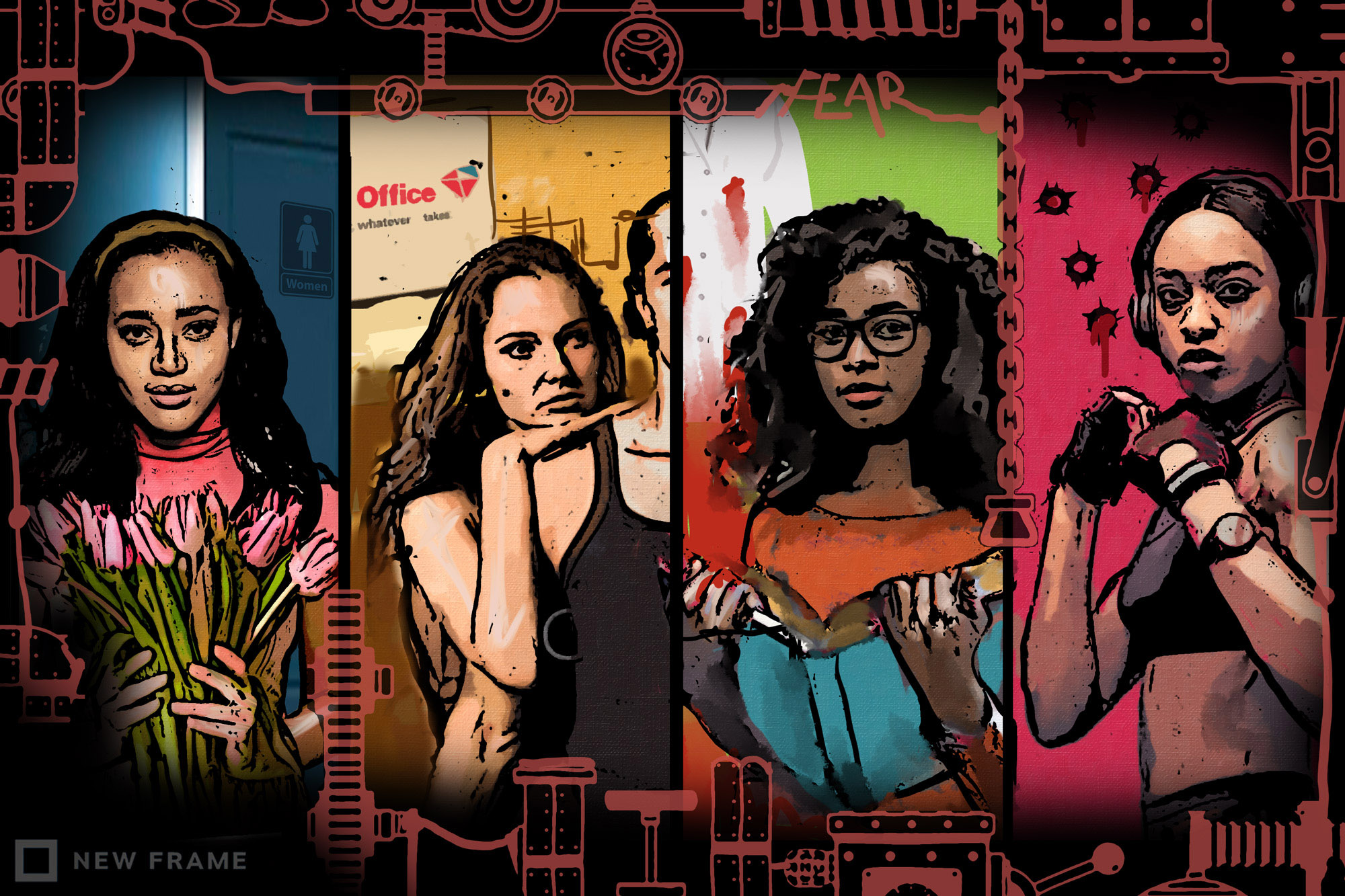The patriarchy expects you to follow these scripts
There are many scripts that women are told to follow in the machinery of patriarchal fear taught by South African society.
Author:
19 September 2019

Patriarchy runs on fear: fear of being an outsider, fear of being brutalised and fear of being too much, too inadequate, too vocal or too different. Fear is an excellent way to keep people under control because it forces us to police ourselves in the false hope that we may be able to keep ourselves safe.
This false hope is part of the machinery of fear, what I named the “Female Fear Factory” in my 2015 book, Rape: A South African Nightmare (Jacana). In other words, false hope is tattooed on to our very skin and psyche as we are taught to inhabit patriarchal gender identities.
For women, in South Africa, as elsewhere, it is increasingly clear that the scripts we inherit on how to minimise the likelihood of being targets of violence are a con. Since childhood, we are taught to bear the burden of responsibility for a system designed to cut us down at best, or annihilate us at worst.
Script one
Dress like a good, respectable girl so that you can be chosen as a proper wife and earn respect by association. Dress this way so you do not look like a despicable woman who enjoys sex and who may or may not use sex to make money.
Script one stops short of pointing out that the exceptions are the norm. Having a life as an adult woman is enough to prove you are an undesirable woman, as activist Pregs Govender reminded us during the rape trial of former president Jacob Zuma in 2006. It also assumes that you may have enough time to grow into an adult woman who acts in this way.
You assume there will be no Nicholas Ninow to follow you, a seven-year-old girl, into the bathroom stall of a family chain restaurant, or a Bob Hewitt to molest you when all you want is to excel at tennis by learning from a Wimbledon champion.
This script leaves out the fact that, a year later, you may have to relive it all and testify against Ninow for a legal system whose definition of justice need not recognise that re-traumatisation can persist for a lifetime, even if a perpetrator admits guilt and goes to jail. It omits that you may find out after the fact that Hewitt is up for parole, when the parole board has consulted neither you nor the other children he raped. When you tell a radio show host that the entire ordeal is “just constant rerape”, your words echo in so many survivor hearts.
Script two
Do not head out after dark and, if you do, ask men you know to walk with you. Men you know will keep you safe from bad strange men, the legitimate owners of all public spaces. If you can, stay in the wealthier parts of town, where there are fewer bad strangers.
Script two omits that bad men are not all strangers. Sometimes the bad men are the ones you choose to love as friends, family or partners because there is no foolproof detection technology. The second script is silent on the ones who walk into or break into your house and kill you. No one warns you that if your name is Anene Booysen, the men you ask to escort you – your brother’s classmates – are the ones who will rape and slaughter you.
Related article:
The script says nothing about how you walk into a post office in the Southern Suburbs of Cape Town, excited about receiving a package, and when the attacker you are fighting off realises you might win, he bludgeons you with the heaviest thing he can find. It does not prepare Uyinene Mrwetyana to be raped and killed at a post office, next to a police station, on a Saturday afternoon.
It leaves us unable to make sense of how Jesse Hess was killed with her grandfather in their home one Friday night in Parow, or how Karabo Mokoena was killed by a man she once identified as a good one.
Script three
Stay in school so that you are not dependent on a man. When he starts to act in ways that make you uncomfortable, unsafe or he outright abuses you, leave. If you do not leave, then he will get worse. Get out with your life, and make sure the police know.
This script is a kicker because it has some basis in truth, because patriarchal financial control is long-lasting.
Patriarchal societies romanticise control and abuse by men in heterosexual relationships as commitment, real love or a rough patch. What about the fact that Thobeka was a doctor stabbed and drowned by the scientist husband she had known all her life, or another doctor recently shot in the head by a husband she had left as she tried to collect a few belongings from their home? He did not let their children’s presence in the house stop him as he did so.
This script did nothing to save these women. It offers little consolation for you, if the man you are in the process of divorcing kills all four of your children, the same children he looks so protective and loving of in family photos.
Script four
Learn to fight so that you know both how to defend yourself effectively and how to inflict the most harm on a man’s body. This will keep you safe. It surprises and unnerves men when women know how to fight, especially when those women know how to fight well. Women also need to know how to use legal means to protect themselves. Report violence and get protection orders. Go to the police for help. Real violated women report.
Related article:
For many women, and for one whose name is Leighandre “Baby Lee” Jegels, this script about protecting yourself is particularly cruel. A black-belt karate champion for four uninterrupted years is a superior fighter. She is skilled, measured, composed. When this same woman becomes an undefeated boxing champion, not only is she obviously a star athlete, she also enters a level of skill set rarely encountered.
But Baby Lee’s black belt and boxing gloves could not stop the bullets from her ex-boyfriend’s gun, aimed at the heads of her and her mother. The protection order against her police officer ex should have led to the confiscation of his gun. Baby Lee was a fighter who used her hands, her fists, her mind and the courts to fight. Patriarchal violence won against a woman previously undefeated.
We will not tire
Four scripts. Women raised in patriarchal society know these well. We also know that there are more, and none of them keep us safe. Instead, they exhaust and take us out. We, the women who remain, walking wounded as many of us are, are fighters. Patriarchy may terrorise and brutalise us, but we will not give up the fight. As we take to the streets repeatedly, defy the fear, defend ourselves and speak in our own name, we know collectively, we have to keep up the fight.
As I feel the rage burn through my tears at the relentless onslaught against women, and the careless disregard by most of the men in power to intervene, not because we need protection, but because we elected them and they work for us. Patriarchal violence is isolating. How can so many of us feel so alone, my sister-friend Andile Gaelesiwe asks me, rhetorically. I cry again watching a viral clip of a young woman saying we will die fighting because women get killed when we fight and when we do not.
I want to live in a country and world where women do not have to be fighters just to stay alive. Like millions, I may be exhausted from the fight and raw from the spilling of so much blood and breaking of so many spirits, but we will not tire. Asoze aphel’ amandla. We will continue to craft consequences that count. On our own, together, we are finding a way out of the fear.

![2 August 2018: “I decided to kill myself because when my last-born experiences what I had been experiencing, [it] was [a] torture ... I couldn’t withstand…”](https://www.newframe.org/wp-content/uploads/2019/04/image-24-442-150x150.jpg)
